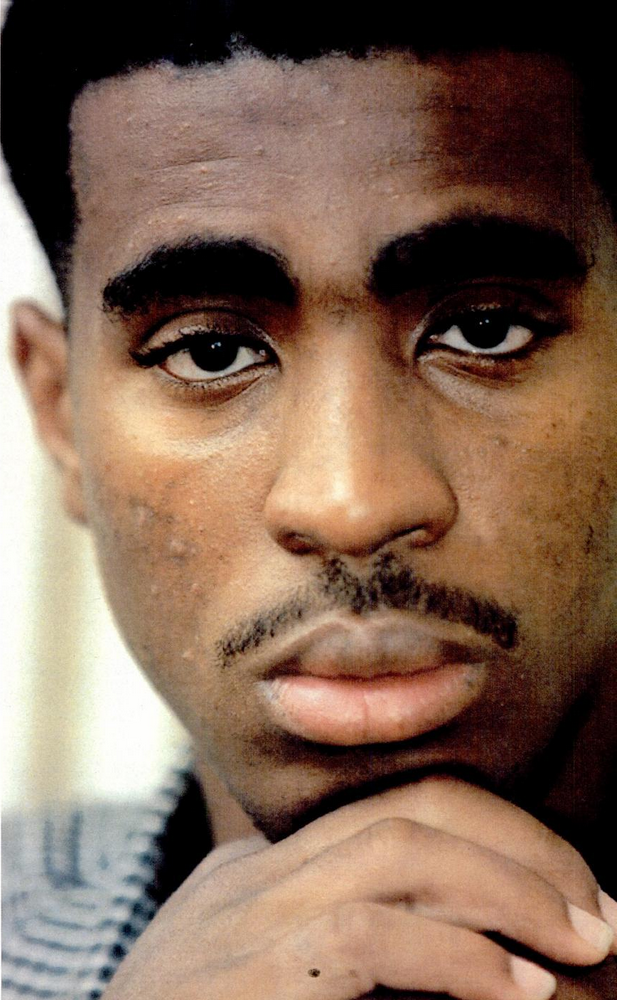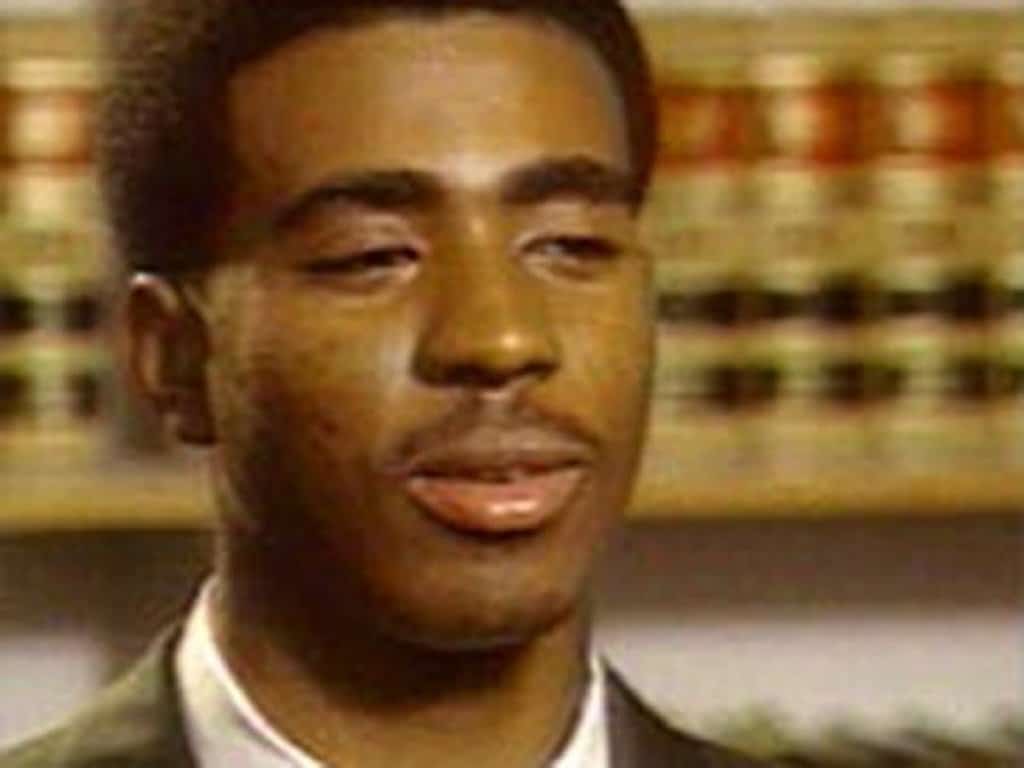Orlando Anderson & Tupac: The Unsolved Mystery & Key Details
Could a single act of violence, a confrontation under the neon lights of Las Vegas, truly unravel the life of a rap icon and ensnare a city in a web of suspicion that would span decades? The unsolved murder of Tupac Shakur, and the shadow cast by Orlando Anderson, are testament to the enduring power of unanswered questions and the brutal realities of gang life that permeated the world of hip-hop.
The name Orlando Anderson has become inextricably linked with the murder of Tupac Shakur, a tragedy that occurred on the night of September 7, 1996, in Las Vegas, Nevada. The events of that night, and the subsequent years, have painted a complex portrait of a man, a city, and a music scene rife with conflict and intrigue. The story is layered with allegations, rumors, and a pervasive sense of injustice that continues to resonate with fans and investigators alike.
Before the shots rang out at the intersection of Flamingo Road and Koval Lane, an incident at the MGM Grand hotel set the stage for the tragic events to unfold. Earlier that evening, Shakur and his entourage, including Marion "Suge" Knight, the head of Death Row Records, had been involved in a physical altercation with Anderson and his crew. Security footage later revealed the confrontation, which would become a critical piece of evidence in the investigation. The exact reasons for the fight remain a point of contention, but it's widely believed it stemmed from ongoing tensions between rival gangs and the perceived disrespect within the hip-hop community.
- Subtitletrans Fast Affordable Video Subtitling Translation
- Charlie Hurts Salary Net Worth What You Need To Know
Anderson, a member of the South Side Compton Crips, a notoriously violent Los Angeles gang, quickly became a prime suspect in Shakur's murder. The investigation was complicated by the lack of witnesses willing to cooperate and the pervasive code of silence that governed the gang world. Though never formally charged, the evidence and circumstances surrounding Anderson's involvement pointed towards his culpability. The .40 caliber Glock used to kill Tupac was found in Compton and connected to Anderson's associates.
The investigation into Tupac's murder has been plagued by a lack of closure. The case remains open, and the pursuit of justice continues to this day. Recent developments, including the arrest of Andersons uncle, Duane "Keffe D" Davis, in 2023, have reignited interest in the case and brought forth new pieces of evidence. His confession, made years ago, that he was in the car from which the shots were fired, has now placed him as the key perpetrator along with Anderson. The investigation has been complex, with rumors and speculations, adding layers to the unsolved murder. The search for the truth continues to be a long and difficult process. The story is a dark reflection of the violence in the music industry. The ongoing investigation and the long wait for justice, continue to fuel the enduring legacy of Tupac Shakur.
The following table provides a biographical and professional overview of Orlando Anderson:
- Chadwick Boseman Biography Roles Black Panther Legacy
- Travis Kelces Return Super Bowl Emotions Chiefs Updates
| Category | Details |
|---|---|
| Full Name | Orlando Tive Anderson |
| Date of Birth | August 13, 1974 |
| Place of Birth | Compton, California |
| Gang Affiliation | South Side Compton Crips |
| Known For | Suspect in the murder of Tupac Shakur, involvement in a fight with Shakur, and a member of the South Side Compton Crips. |
| Incident | Involved in a fight with Tupac Shakur and was shot to death in 1998. |
| Death | Shot and killed in a gang shootout in Compton, California, on May 29, 1998. |
| Relationship to Shakur Case | Primary suspect in the murder of Tupac Shakur. |
| Allegations | Accused of being the shooter in the Tupac Shakur murder, based on various investigations. |
| Legal Issues | Involved in a lawsuit with Shakur's estate. |
| Uncle | Duane Keffe D Davis, recently arrested for his involvement in the murder. |
| Additional Information | Anderson was a Compton rapper. |
| Reference | The New York Times - Tupac Shakur Murder Case |
Anderson's life was tragically cut short. On May 29, 1998, less than two years after Shakur's murder, he was shot and killed in Compton, California, in a gang-related shooting. The circumstances surrounding his death have added another layer of complexity to the narrative, as investigators have speculated on whether his murder was related to the Shakur case.
The ripple effects of the Shakur murder extended far beyond the immediate victims. It cast a shadow of suspicion over the hip-hop world and the city of Las Vegas. The events of September 7, 1996, are now etched into the history books, not only as a tragic loss of a talented artist but also as a reminder of the pervasive violence that gripped the music industry.
The arrest of Duane "Keffe D" Davis in September 2023, has offered a new chapter in the case, leading to increased public interest and hope for justice. While Anderson is long gone, the implications of his alleged role continue to resurface as the case unfolds.
The investigation into Tupac's murder has been marked by the challenges inherent in dealing with gang-related crime, including witness intimidation and the prevalence of the code of silence. Despite these obstacles, law enforcement officials have remained committed to solving the case and bringing those responsible to justice.
The narrative surrounding Orlando Anderson is a complex tapestry woven from threads of rivalry, violence, and the quest for revenge. He was a product of his environment. His life and death reflect the grim reality of the gang culture that shaped the landscape of Los Angeles in the 1990s. The fight at the MGM Grand hotel was the starting point that ultimately led to a chain of events that had terrible consequences. His name will forever be linked to the death of Tupac Shakur.
The release of security footage from the MGM Grand hotel, showing the fight between Shakur's entourage and Anderson, provided a crucial piece of evidence and brought Anderson to the public eye. The incident brought his name into the mainstream. The ongoing investigation into Shakur's murder serves as a painful reminder of the many unresolved issues. The pursuit of justice continues even after his death.
The circumstances of Anderson's own death in 1998, in a gang-related shootout, further complicated the narrative, adding a layer of irony and tragedy to the story. His death, and its relationship to the events of September 7, 1996, remains a subject of speculation.
The legacy of Tupac Shakur remains alive to this day. His music continues to inspire millions, and his impact on the world of hip-hop is undeniable. The tragic story of Orlando Anderson is also a reflection of a dark time in hip-hop history, reminding us of the cost of violence and the need for justice.
- Chadwick Bosemans Wife Taylor Simone Ledward Pregnancy Rumors Legacy
- Discover Your Free Open Source Iot Device Management Solution

Orlando Anderson “the man who shot Tupac” The Hip Hop Museum
![[專題] The Last Words of Tupac Shakur](https://1.bp.blogspot.com/-NSzIG-EWoB4/U9X_rGlQaQI/AAAAAAAAQPE/rIgzBZLw7FY/s1600/+Orlando+Anderson.jpg)
[專題] The Last Words of Tupac Shakur

Orlando Anderson Shot Tupac Shakur Murder Explained